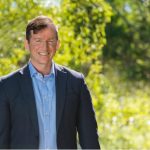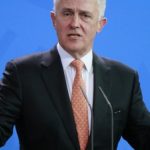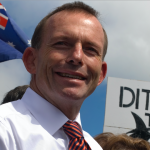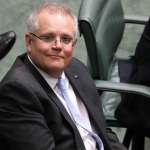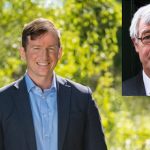Healing the Nation: An Interview With Warringah Independent Susan Moylan-Coombs
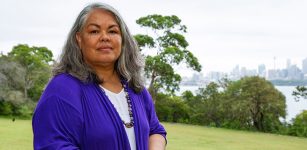
Climate change denier, marriage equality opponent, and the man who, just a few years ago, effectively declared Australia was terra nullius before the British arrived, Tony Abbott is again set to contest the seat of Warringah in the upcoming federal election.
The former prime minister has held onto the seat for close to a quarter of a century. And the now backbench bully took it out in the last election with a whopping 27 percent margin. But, times have changed. And his seat doesn’t seem as safe as it used to be.
The fallout from the Liberal Party leadership spill has been immense. Independent Dr Kerryn Phelps took out the never-before-lost seat of Wentworth, Labor had a landslide victory in the Victorian state election, and recent polls show a nationwide swing of 4 percent against the Libs.
Warringah locals have been mobilising against Abbott with a number of grassroots campaigns springing up calling for his ousting. There’s Vote Tony Out, Voices of Warringah, Think Twice Warringah, People of Warringah and the North Shore Environmental Stewards.
And right before Christmas, Susan Moylan-Coombs announced she’d be running against the veteran politician in May. The long-time northern beaches local has also set her sights on his current position of special envoy on Indigenous affairs.
A First Nations independent
Ms Moylan-Coombs is a former broadcaster, a mental health educator and she’s the founding director of First Nations organisation the Gaimaragal Group, which was “established to lead social change by bringing people and communities together”.
A member of the Stolen Generations, the Woolwonga and Gurindji woman from the Northern Territory has said that Indigenous affairs and the environment are going to be front and centre of her campaign.
And the long-time First Nations rights activist was adopted at a young age by the well-known Coombs family. She’s the daughter of John Coombs, who was once president of the NSW Bar Association. And her grandfather was HC “Nugget” Coombs, the first governor of the Reserve Bank.
Raising cultural awareness
In her role at the Gaimaragal Group, Ms Moylan-Coombs works to bring an Indigenous understanding to western institutions that are currently devoid of these perspectives, in order gradually incorporate these outlooks into their policymaking.
And it’s this sort of First Nations cultural awareness that Ms Moylan-Coombs seeks to bring as an independent to federal parliament, whether that be in her understanding of environmental issues or if she’s speaking about the need for this country to finally undertake a treaty process.
Sydney Criminal Lawyers spoke to Susan Moylan-Coombs about her position on climate change, the need for this nation to go through a process of healing and why she believes she’s the woman to take out the seat of Warringah.
Firstly, Susan how did you come to the decision that the time was right for you to move into politics and indeed, challenge Tony Abbott in the seat he’s held for 24 years?
It’s been an interesting journey. Given my family – who’s been playing in the political arena over the decades – I was always of the opinion that I didn’t want to enter into politics, even though inside and outside of the family were encouraging me to do so.
For me, it was always about could I actually follow a party line and uphold party principles and policies. If there were things that I was opposed to, I don’t think that I would compromise very well. So, I didn’t want to go into politics and be part of a particular party.
Last May, I was at the Australian Leadership Retreat on the Gold Coast. I was making a speech there. People came up and said, “Why aren’t you in politics.” I told them what I’ve just said. And they said, “Why don’t you go independent.”
It was one of those slap on the forehead moments. And I truly had never thought of running as an independent before. I considered it carefully. I spoke to people around me who I take counsel and get advice from.
I also spoke more importantly with my partner and my children, as it’s not just me stepping into this. They will be in and around the campaign. And as I’m Indigenous, there could potentially be some unpleasant stuff that goes flying.
I wanted them to be fully informed and aware of what I was potentially going to do. And I really wanted their consent and backing. It was great. My son said, “Well, Mum, I thought you would have done this years ago.”
And I watched with great interest what was going on in Wentworth with Kerryn Phelps. And I thought, OK, maybe the country is ready for a change. Maybe it’s ready for other independents. Again, I was still very cautious about stepping into it. And then I just decided I would.
People were saying it will get dirty. Politics is not an easy game. And I needed to be fully prepared to take that step and I did so on 24 December. Merry Christmas Warringah.
You’ve said that if you’re elected, you’d like to take over your opponent’s position as special envoy on Indigenous affairs. What did you think about Tony Abbott being appointed to this position by incoming prime minister Scott Morrison?
It was a period of time when there was huge disharmony within the party. They’d had the spill and the takeover by Scott Morrison. Abbott was sitting there. It was really a position to give him something to do. He was generally surprised and thought about the offer before he agreed to it.
People have asked me whether he’s done a good job, or whether he’s the best person for it. I’m very aware that he’s travelled extensively into communities over the years. And I’m aware that he appointed himself when he was prime minister to oversee Indigenous affairs.
On the one hand, he’s shown an interest and a level of commitment. My concern is that in 2019 the country is ready for an Indigenous person as the minister for Indigenous affairs. If I’m successful and get into Canberra, I hope that position could be afforded to someone such as myself.
Or if a role as special envoy could be afforded to me, then I would absolutely take that up. I have a different lens through which I would view the system, than a non-Indigenous person does. And I would be making different decisions.
We just need to change the conversation around Indigenous affairs.
In your understanding, what’s important to Warringah locals? And what sort of platform will you be campaigning on?
Being a true independent there are things that I am passionate about from a perspective of someone who has grown up in Warringah. And in all seriousness, these are the hot topics for all electorates and they certainly are for Warringah.
It’s about what we’re doing with the environment. From my own cultural perspective, as an Indigenous woman, protecting the environment and living in synergy with it is fundamental to who we are, both from a cultural perspective, and also just from being human.
And it’s about protecting the environment not for our generation, but for future generations to come. That’s also a cultural perspective.
What are we doing in terms of renewable energy? There are alternatives to what we are doing at the moment.
I just returned from India. I was speaking at an international peace conference. It’s fascinating to have a look at what’s going on around the world in and around this.
The conference had forty three nations represented there. There were conversations around how people in the future are going to be able to have the energy requirements they need. There are whole states and territories looking at doing it differently.
India, China and Europe are absolutely leading the way. I’m quite sure that Australia can get on board with this.
People in the electorate have said to me that renewable energy is very expensive. They’ve said, “How am I going to be able to afford it?” But, it’s the way that policy in this country has skewed us towards what we’ve always had and locked people into the energy sources that we’re currently living with.
The renewable question has been priced out of the market. But, you have whole country towns now that have solar farms and they’re generating their own power, and running their towns with it.
When you look at what’s going on in South Australia with the solar farm down there, once the demand starts to happen the prices of renewable energy will go down.
In terms of Warringah, there is a solar hub happening in Manly, with a whole lot of different organisations looking at some sort of renewable energy in our electorate.
People want to be able to reduce the prices of everything. There’s psychological distress and fatigue going on about how we can afford to live.
So, it’s about ways of reducing pressure on the hip pocket and the environment, as well as looking into the future with all the climate change that’s happening.
And you know what? It’s our young people that are really starting to pick up the baton. We had Warringah students do the March for Climate at the end of last year. And I was very inspired by that.
I thought, here we are with young people who are taking to the streets, and they’re actually going to be the voters and adults of the future. If we don’t start growing them up strong and working with them on how they’re going to inherit the future, then we haven’t done our jobs as adults.
And in terms of Indigenous issues, what’s important for you?
I made a statement at my launch about 26 January, and the divisive narrative that goes on in the lead up. As Australians, we are better than this.
We really need to once and for all rip the Band Aid off the wound, have a mature adult conversation, and put it to bed once and for all. We need to be able to move forward as Australians to a place of healing – where we can heal those old wounds. Those wounds are really deep.
We have conversations around the meaning of 26 January. It’s a day when people just want a public holiday. They want a barbeque. They just want to get drunk. But, for us as First Nations people, it’s a day of deep sadness, when things changed.
So, what I want to do is unite the nation – unite the narrative. Weave it together and be able to really do the truth telling and look at our history from 1788 onwards, when we recognise modern Australia was born, or we were invaded, and really be able to maturely have those conversations.
The other thing is, looking at the work that I do with the Gaimaragal Group, which is about empowering our community over here in northern Sydney. It’s about providing cultural knowledge for the mainstream.
The work speaks to us culturally as communities in northern Sydney. And I’m talking about First Nations communities, as there are a lot of smaller communities across the northern Sydney region.
If the federal government is wanting to close the gap – which I don’t think is really designed to close – then looking at our situation through a western lens is not going to cut it.
We really need to allow us as First Nations people to guide it. And this is like a broken record for us. We’ve been saying this for decades.
I was involved in the Closing the Gap Refresh with the Prime Minister and Cabinet. It was fascinating to me, because one of the public servants, who was a statistician, made all these statements. And the one that stuck out to me was “what we focus on is what we measure, and what we measure is what we focus on”.
I said, “Well, you’re focusing on the wrong thing. Because the stuff that will actually engage us and ultimately, change the narrative, is when you bring the cultural elements and context into it.
At the end of last year, the ABS was doing a health survey. And apparently, my home was just randomly selected, which I doubt. A guy knocked on the door and asked if any Aboriginal people live here. And my partner was like, “What?”
I wasn’t home at the time. He told them that they’d need to come back. And I agreed to meet with him. It was a fascinating conversation I had with him. I answered most of the questions and I refused to answer some. And I didn’t want my children to be measured and weighed.
At the very end, I said, “Are you finished.” He said, “Yes.” I said, “So, none of that has any cultural context to it. And you’re wanting to understand why, as a race of people, we continue to be unwell.
It’s because you’re completely measuring us through a western lens and don’t ever ask the right questions.”
So, when you start to ask the right questions, which is what I do with the Gaimaragal Group, you go to the community. You talk about health, housing and education or whatever the social indicator is, as well as what’s relevant and reasonable.
You take those voices to the government department. And you start to shape and model those program deliveries to absolutely speak to our communities. And that’s what we’ve been doing.
I got asked to write the Aboriginal women’s health plan for the Northern Sydney Local Health District. And I said, “Well, I will work on this. But, I want to completely flip it. I want to actually look at the female life cycle. You only want to measure us from a period of time, when you need to be inclusive of all things.
You need to look at birth, life and death. And how are we healthy within that cycle. It’s ultimately, not just about us. It’s about our relationship to family and the community. And our relationship to country.
But, that never comes into it when you’re going to the GP, because there’s something wrong with you. You never actually fully explore, in a cultural way, how to capture what makes us well.”
So, the health plan that I wrote brought in the cultural aspects of the female lifecycle and dovetailed them into the western health system. And it was a ground breaker. It had never been done before.
And it’s still being held up as a seminal document that shows a different way of doing it that tries to shift the thinking of the western medical system, to incorporate and be inclusive of cultural perspectives.
Slowly, over time, it starts to make a difference and it’s been really good.
And in the way of treaty, what’s your position?
We need to look at a treaty, because of all of the issues that have come about are due to the way that this country was supposedly founded. There was never a treaty like other nations.
So, when you look at Aotearoa – which is New Zealand – and the fact that they had the Waitangi Treaty, it’s very different life circumstances throughout the Maori people’s history because they have a treaty.
Sadly, that didn’t happen here. And I absolutely recognise that there were hundreds of nations here. And as time went on, the concept of having treaties became quite a complex and dynamic issue. But, I really think we need to stop and settle the past in a way that does include our narrative.
The analogy is for me the pebble in the shoe. As a nation we just kept walking on down the path, and there’s always been the pebble in the shoe. And it has gotten to the point where it’s almost gangrene.
We keep having these awful conversations that play out in the media. And 26 January is an example of that. But, the fact that we don’t fair so well in all of the social determinants – all of the different age groups in health and well-being and all of it – actually means that there’s an issue.
And when you recognise that at the United Nations there’s a Declaration of the Rights of Indigenous People, we have a right to be different. But, that document at the international level cannot overturn domestic law. So, we’re sitting between a rock and a hard place.
There are some inspirational words that absolutely speak to our rights as Indigenous people. But, Australia was one of four countries that didn’t adopt it.
It’s this awful position. And it’s a political minefield. We just need something different to happen to bring us together and to heal the nation and unite us.
I want to be a part of that. And treaty is fundamentally important to take that forward.
And lastly, you’re about to take on Tony Abbott, who took out the last election by a huge margin. However, the fallout from the leadership spill has had quite an impact on the Liberals support base.
Susan, are we about to see a changing of the guard in Warringah? And do you believe you’re the woman to take the seat out?
I believe that I’m the woman to take out the seat. I didn’t enter this lightly. My point of difference speaks for itself.
Yes, I acknowledge that he’s been in politics for 24 years. He’s been a prime minister. And he’s contributed a lot to this nation.
But, change is required. And particularly with independents, who are rising across the nation in different electorates. We need them to go in there and truly advocate for their electorate.
At the moment, you’ve got those big parties that point fingers and their dialogue is just atrocious. And Australia is fatigued by it.
We just want people to lead the country, get on with their job, stop playing the blame game and actually take it forward.
There is the old guard and the old way of doing politics in this country. Has it taken us forward? I don’t think so. It’s kind of held us back as a nation.
Coming from the peace conference overseas, people just don’t understand what we’re doing on so many different fronts. And to a certain extent, it’s embarrassing.
I can’t just sit by and not step up and in. And what I bring is different. The female voice. The one to heal. The one to take the nation forward is what I would like to be.


